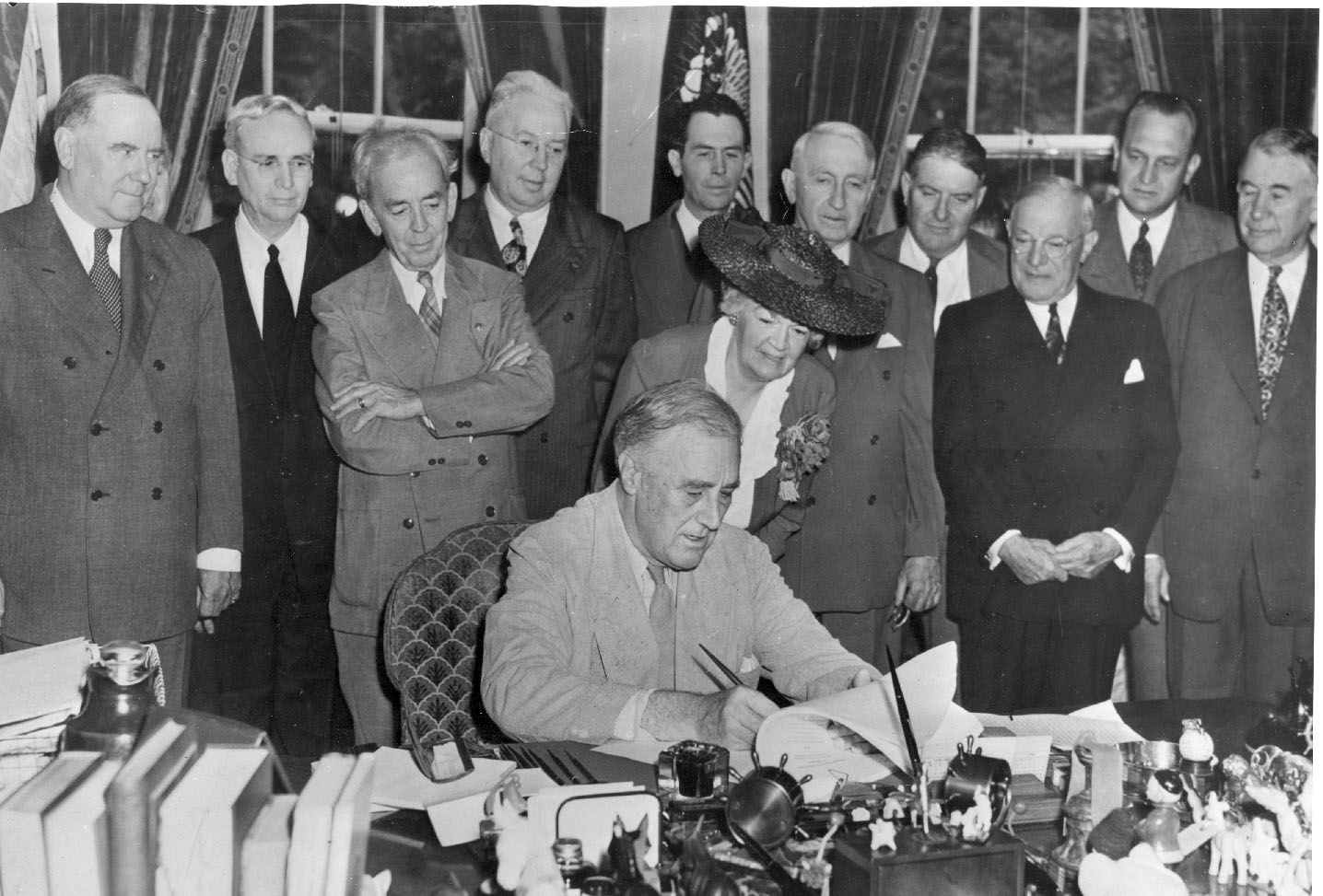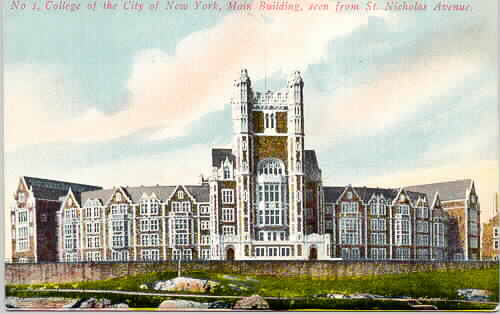|
Student Housing Cooperative At Michigan State University
Spartan Housing Cooperative (SHC) is a nonprofit member owned and operated housing cooperative. The SHC was formed as in 1969, as a federation of existing student housing cooperatives in East Lansing. Since the first of the SHC's member houses formed 69 years ago, SHC has accumulated more than 4,000 members. Houses The Spartan Housing Cooperative currently maintains 17 houses in East Lansing, Lansing, and Okemos. Current Houses *New Community * House of Apollo (previously Avalon) * Beal * The David Bowie Memorial Cooperative *Hedrick * Howland * Toad Lane *Miles Davis * Orion *Phoenix *Raft Hill * Vesta *Bower * Zolton Ferency # In 1971, the MSU SHC became a collective land trust with donations of property from Bower, Elsworth, and Hedrick cooperatives. Houses No Longer A Part of the SHC *Atlantis *Eleutheria (located at 125 Evergreen Street, it was destroyed by fire in June 1972) *Hillsdale House Cooperative *Montie A Chronological History of the SHC Houses A Brie ... [...More Info...] [...Related Items...] OR: [Wikipedia] [Google] [Baidu] |
Housing Cooperative
A housing cooperative, or housing co-op, is a legal entity, usually a cooperative or a corporation, which owns real estate, consisting of one or more residential buildings; it is one type of housing tenure. Housing cooperatives are a distinctive form of home ownership that have many characteristics that differ from other residential arrangements such as single family home ownership, condominiums and renting. The corporation is membership based, with membership granted by way of a share purchase in the cooperative. Each shareholder in the legal entity is granted the right to occupy one housing unit. A primary advantage of the housing cooperative is the pooling of the members' resources so that their buying power is leveraged; thus lowering the cost per member in all the services and products associated with home ownership. Another key element in some forms of housing cooperatives is that the members, through their elected representatives, screen and select who may live in th ... [...More Info...] [...Related Items...] OR: [Wikipedia] [Google] [Baidu] |
Zolton Ferency (Co-op)
Zolton Anton Ferency (June 30, 1922 – March 23, 1993) was an American lawyer, political activist and Professor of Criminal Justice at Michigan State University (MSU). Ferency was born in Detroit, Michigan, in a Hungarian-American family. He served in World War II, and graduated from Michigan State University and the Detroit College of Law. Ferency was a three-time chairman of the Michigan Democratic Party. He was an unsuccessful Democratic candidate for Governor of Michigan in 1966, when he was defeated, as expected, by George W. Romney. He also served as first President of the Human Rights Party, which he helped found in 1970 after breaking with the Democratic Party over its support for the Vietnam War. He rejoined the Democrats in 1976. Ferency was elected to the Ingham County Board of Commissioners in 1980, and to the East Lansing City Council in 1991. He was serving on the city council at his death. He was a frequent if unsuccessful candidate for other public offices, ... [...More Info...] [...Related Items...] OR: [Wikipedia] [Google] [Baidu] |
Michigan State University
Michigan State University (Michigan State, MSU) is a public university, public Land-grant university, land-grant research university in East Lansing, Michigan. It was founded in 1855 as the Agricultural College of the State of Michigan, the first of its kind in the United States. It is considered a Public Ivy, or a public institution which offers an academic experience similar to that of an Ivy League university. After the introduction of the Morrill Land-Grant Acts, Morrill Act in 1862, the state designated the college a land-grant institution in 1863, making it the first of the land-grant colleges in the United States. The college became coeducational in 1870. In 1955, the state officially made the college a university, and the current name, Michigan State University, was adopted in 1964. Today, Michigan State has the largest undergraduate enrollment among Michigan's colleges and universities and approximately 634,300 living alums worldwide. The university is a member of the ... [...More Info...] [...Related Items...] OR: [Wikipedia] [Google] [Baidu] |
North American Students Of Cooperation
The North American Students of Cooperation (NASCO) is a federation of housing cooperatives in Canada and the United States, started in 1968. Traditionally, NASCO has been associated with student housing cooperatives, though non-student cooperatives are included in its network. NASCO provides its member cooperatives with operational assistance, encourages the development of new cooperatives, and serves as an advocate for cooperatives to government, universities, and communities. NASCO teaches leadership skills, provides information, and serves as a central link in facilitating the fruition of the cooperative vision for students and youth. Programs and services Linking and networking activities NASCO acts as the organized voice of the "group-equity" cooperative housing movement, both in terms of bringing together student and community co-op activists,Clark, KimAbandoning Pricey Dorms for Cheap Co-op Housing.''U.S. News & World Report.'' 6 Sept. 2007. and in maintaining relationships ... [...More Info...] [...Related Items...] OR: [Wikipedia] [Google] [Baidu] |
GI Bill
The Servicemen's Readjustment Act of 1944, commonly known as the G.I. Bill, was a law that provided a range of benefits for some of the returning World War II veterans (commonly referred to as G.I.s). The original G.I. Bill expired in 1956, but the term "G.I. Bill" is still used to refer to programs created to assist some of the U.S. military veterans. It was largely designed and passed through Congress in 1944 in a bipartisan effort led by the American Legion who wanted to reward practically all wartime veterans. Since the First World War the Legion had been in the forefront of lobbying Congress for generous benefits for war veterans. Roosevelt, by contrast, wanted a much smaller program focused on poor people regardless of military service. As historians Glenn C. Altschuler and Stuart Blumin point out, FDR did not play a significant role in the contours of the bill. At first, Roosevelt shared with nearly everyone the idea that “satisfactory employment,” not educational op ... [...More Info...] [...Related Items...] OR: [Wikipedia] [Google] [Baidu] |
Toyohiko Kagawa
was a Japanese Protestant Christian pacifist, Christian reformer, and labour activist. Kagawa wrote, spoke, and worked at length on ways to employ Christian principles in the ordering of society and in cooperatives. His vocation to help the poor led him to live among them. He advocated for women's suffrage and promoted a peaceful foreign policy. Early life Kagawa was born in Kobe, Japan to a philandering businessman and a concubine. Both parents died while he was young. He was sent away to school, where he learned from two American missionary teachers, Drs. Harry W. Myers and Charles A. Logan, who took him into their homes. Kagawa learned English from these missionaries and converted to evangelical Protestant Christianity after taking a Bible class in his youth, which led to his being disowned by his remaining extended family. Kagawa studied at Tokyo Presbyterian College, and later enrolled in Kobe Theological Seminary. While studying there, Kagawa was troubled by the semina ... [...More Info...] [...Related Items...] OR: [Wikipedia] [Google] [Baidu] |
Red Scare
A Red Scare is the promotion of a widespread fear of a potential rise of communism, anarchism or other leftist ideologies by a society or state. The term is most often used to refer to two periods in the history of the United States which are referred to by this name. The First Red Scare, which occurred immediately after World War I, revolved around a perceived threat from the American labor movement, anarchist revolution, and political radicalism. The Second Red Scare, which occurred immediately after World War II, was preoccupied with the perception that national or foreign communists were infiltrating or subverting American society and the federal government. The name refers to the red flag as a common symbol of communism. First Red Scare (1917–1920) The first Red Scare in the United States accompanied the Russian Revolution of 1917 and subsequent communist revolutions in Europe and beyond. Citizens of the United States in the years of World War I (1914-1918) ... [...More Info...] [...Related Items...] OR: [Wikipedia] [Google] [Baidu] |
First World War
World War I (28 July 1914 11 November 1918), often abbreviated as WWI, was one of the deadliest global conflicts in history. Belligerents included much of Europe, the Russian Empire, the United States, and the Ottoman Empire, with fighting occurring throughout Europe, the Middle East, Africa, the Pacific, and parts of Asia. An estimated 9 million soldiers were killed in combat, plus another 23 million wounded, while 5 million civilians died as a result of military action, hunger, and disease. Millions more died in genocides within the Ottoman Empire and in the 1918 influenza pandemic, which was exacerbated by the movement of combatants during the war. Prior to 1914, the European great powers were divided between the Triple Entente (comprising France, Russia, and Britain) and the Triple Alliance (containing Germany, Austria-Hungary, and Italy). Tensions in the Balkans came to a head on 28 June 1914, following the assassination of Archduke Franz Ferdina ... [...More Info...] [...Related Items...] OR: [Wikipedia] [Google] [Baidu] |
Cooperative
A cooperative (also known as co-operative, co-op, or coop) is "an autonomous association of persons united voluntarily to meet their common economic, social and cultural needs and aspirations through a jointly owned and democratically-controlled enterprise".Statement on the Cooperative Identity. ''.'' Cooperatives are democratically controlled by their members, with each member having one vote in electing the board of directors. Cooperatives may include: * businesses owned and managed by the people who consume th ... [...More Info...] [...Related Items...] OR: [Wikipedia] [Google] [Baidu] |
Sigma Alpha Mu
Sigma Alpha Mu (), commonly known as Sammy, is a college fraternity founded at the City College of New York in 1909. Though initially founded as a Jewish organization, the fraternity dropped its religious affiliation and became open to men of all faiths in 1953. The fraternity was originally headquartered in New York City, where it was founded. Today, its headquarters are located in Indianapolis, Indiana, along with many other fraternities. Since its inception, Sigma Alpha Mu has initiated more than 67,000 members at 150 active and inactive chapters and colonies across the United States and Canada. It is one of three major national/international social fraternities to have been founded at the City College of New York, the others being Delta Sigma Phi and Zeta Beta Tau. History In the fall of 1909, the sophomore class at the College of the City of New York had found itself embarrassed by "lowly freshmen". At a school where "warfare" between freshman and sophomore class was a t ... [...More Info...] [...Related Items...] OR: [Wikipedia] [Google] [Baidu] |
Hillsdale House Cooperative
Hillsdale may refer to: Places In Australia: * Hillsdale, New South Wales, a suburb of Sydney In Canada: *Hillsdale (Nepean), a neighbourhood of Nepean, Ontario * Hillsdale, Ontario, a village about 90 minutes north of Toronto * Rural Municipality of Hillsdale No. 440, a rural municipality in Saskatchewan In the United States: * Hillsdale, Illinois * Hillsdale, Indiana, a village in Vermillion County * Hillsdale, Vanderburgh County, Indiana * Hillsdale, Michigan * Hillsdale Township, Michigan * Hillsdale, Missouri * Hillsdale, New Jersey in Bergen County * Hillsdale, Monmouth County, New Jersey * Hillsdale, New York * Hillsdale, North Carolina * Hillsdale, Oklahoma * Hillsdale, Portland, Oregon, a neighborhood * Hillsdale, Pennsylvania * Hillsdale, Tennessee * Hillsdale, Utah * Hillsdale, West Virginia * Hillsdale, Wisconsin * Hillsdale, Wyoming Rail stations *Hillsdale (NJT station), a railroad station in the New Jersey borough, along the Pascack Valley Line *Hillsdal ... [...More Info...] [...Related Items...] OR: [Wikipedia] [Google] [Baidu] |
Atlantis Cooperative House
Atlantis ( grc, Ἀτλαντὶς νῆσος, , island of Atlas) is a fictional island mentioned in an allegory on the hubris of nations in Plato's works ''Timaeus'' and '' Critias'', wherein it represents the antagonist naval power that besieges "Ancient Athens", the pseudo-historic embodiment of Plato's ideal state in '' The Republic''. In the story, Athens repels the Atlantean attack unlike any other nation of the known world, supposedly bearing witness to the superiority of Plato's concept of a state. The story concludes with Atlantis falling out of favor with the deities and submerging into the Atlantic Ocean. Despite its minor importance in Plato's work, the Atlantis story has had a considerable impact on literature. The allegorical aspect of Atlantis was taken up in utopian works of several Renaissance writers, such as Francis Bacon's ''New Atlantis'' and Thomas More's ''Utopia (book), Utopia''. On the other hand, nineteenth-century amateur scholars misinterpreted P ... [...More Info...] [...Related Items...] OR: [Wikipedia] [Google] [Baidu] |



_(cropped).jpg)


